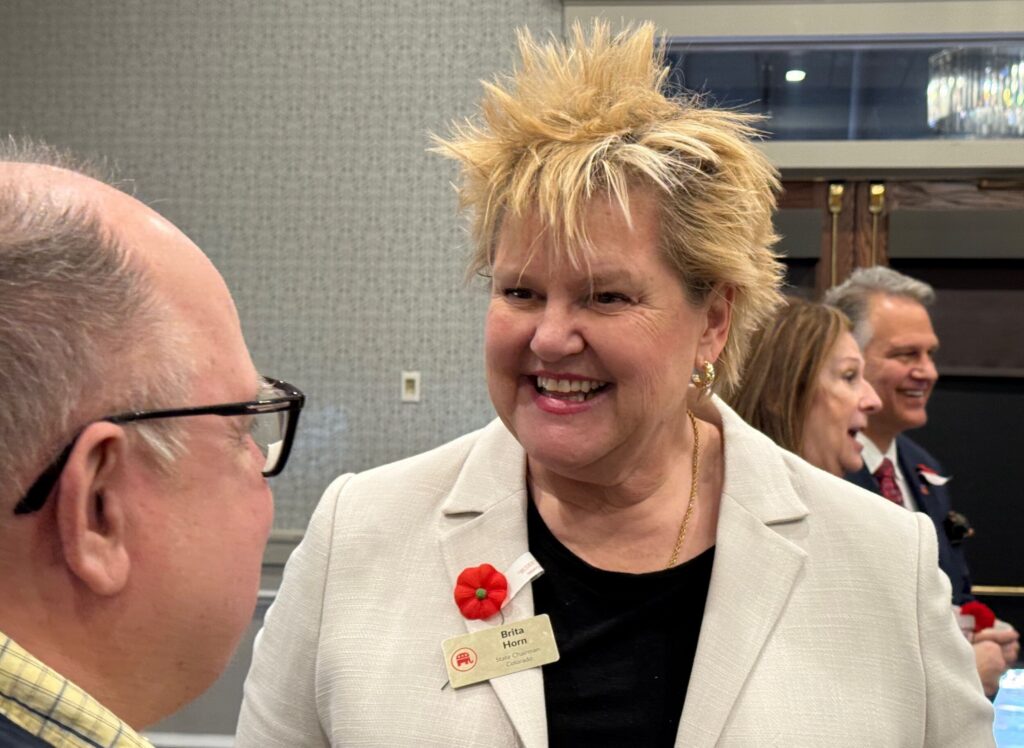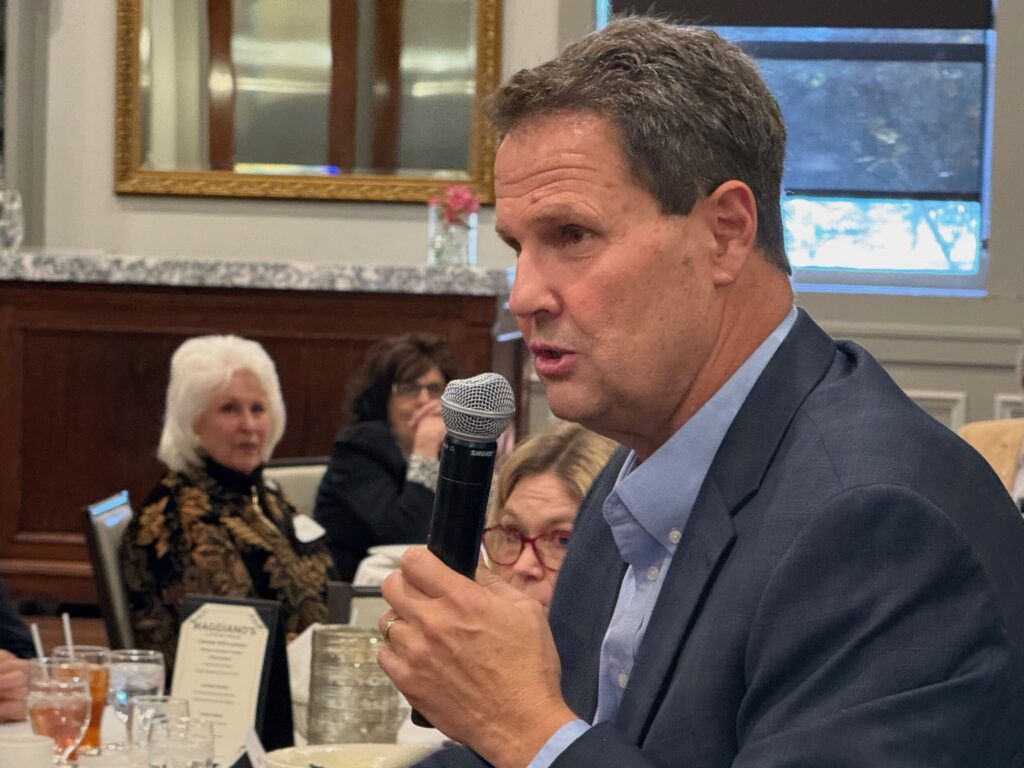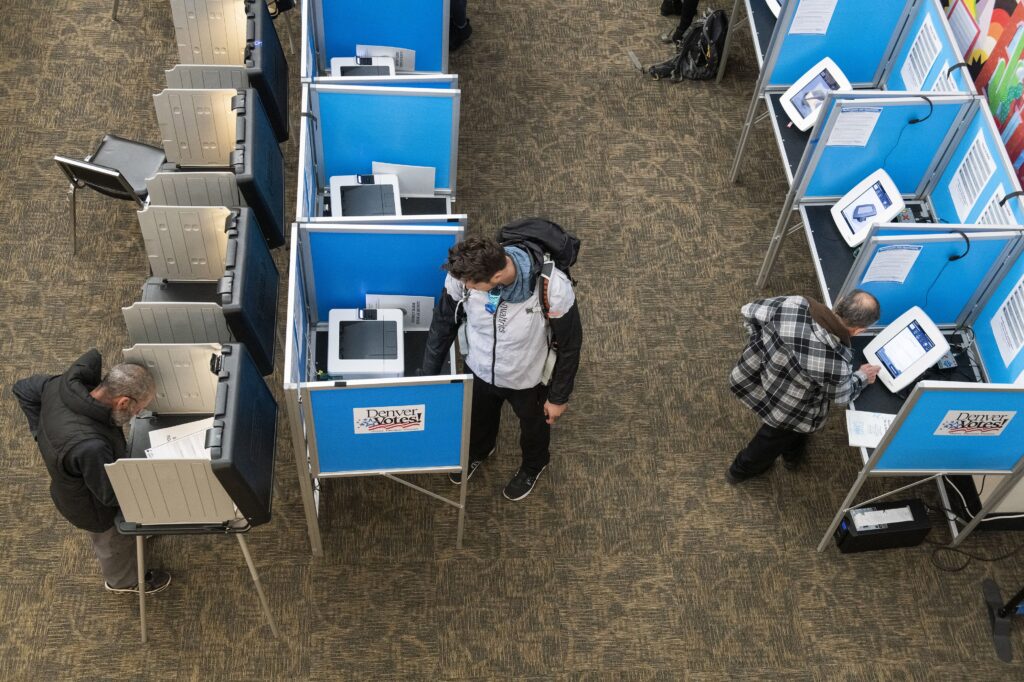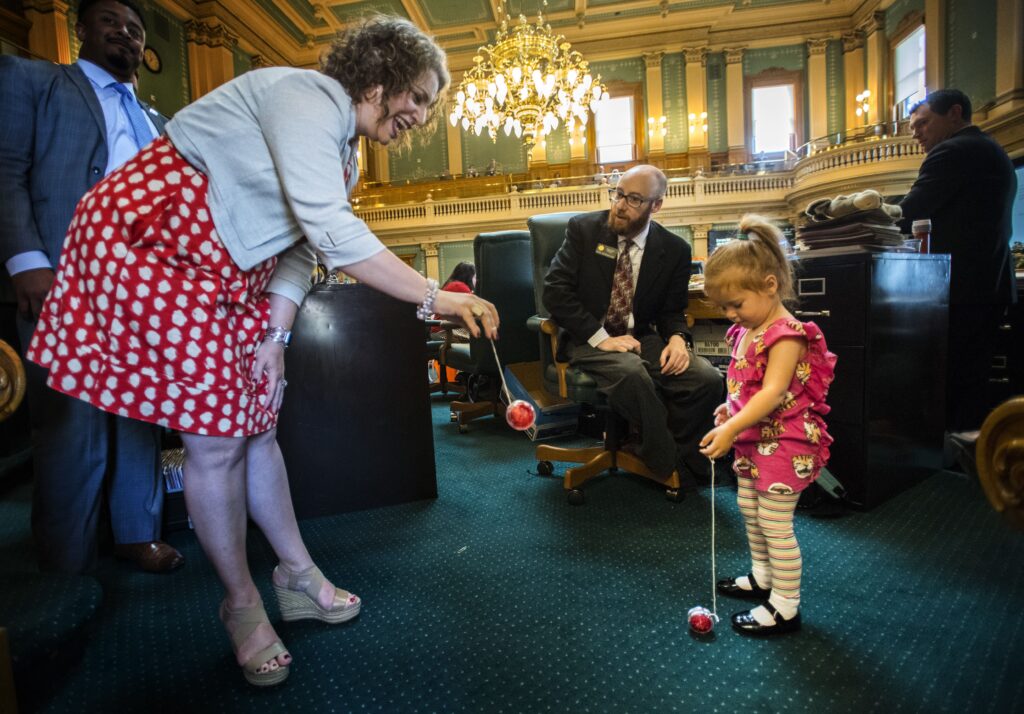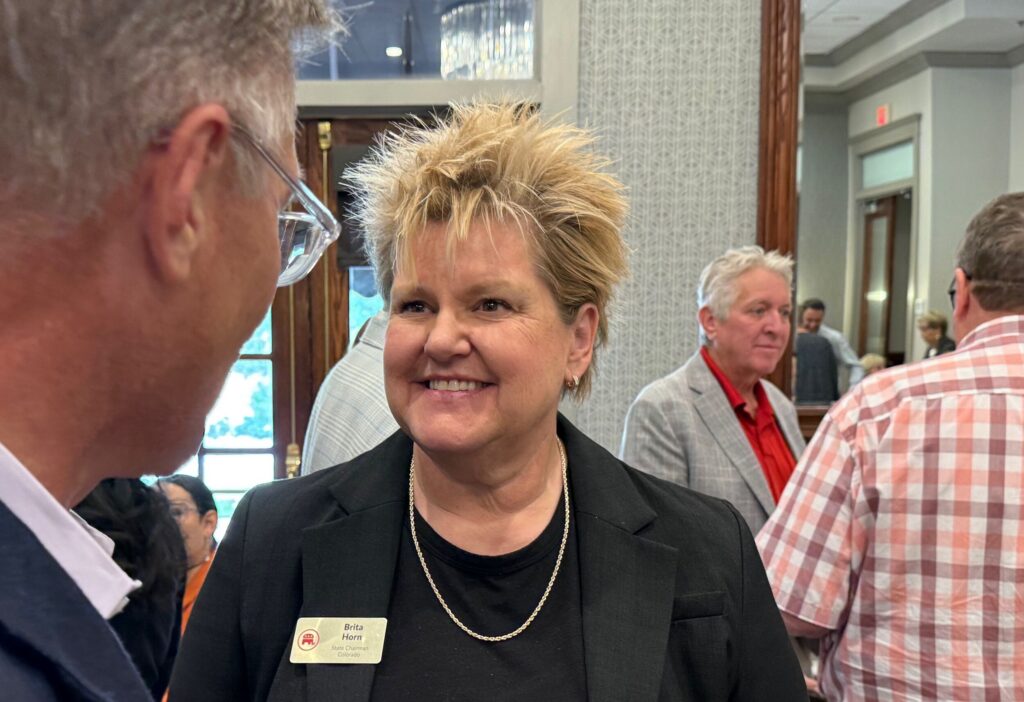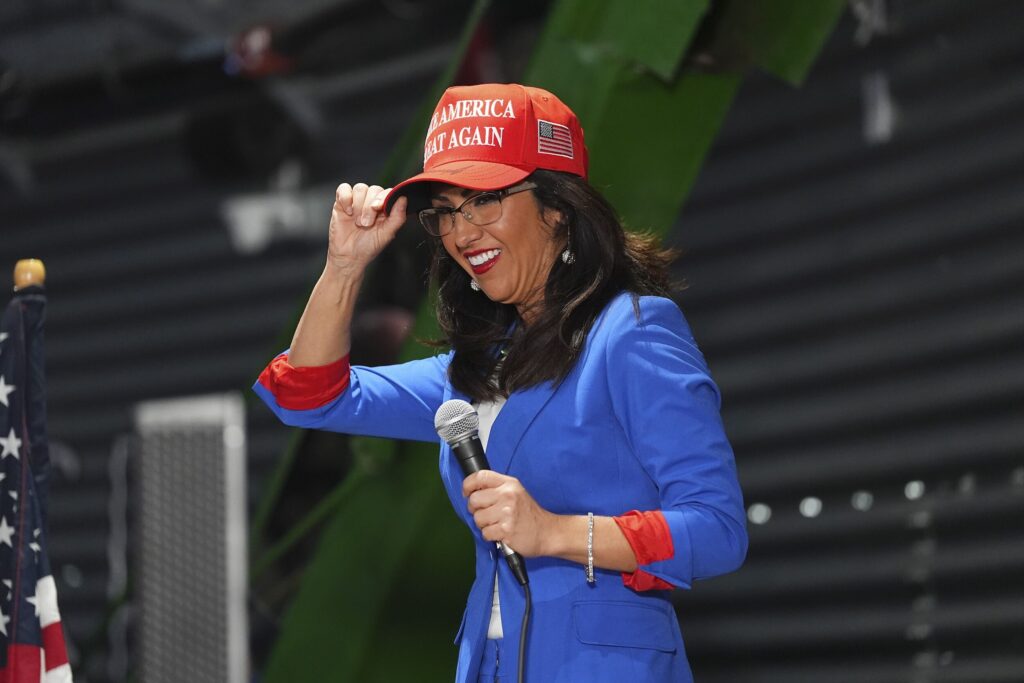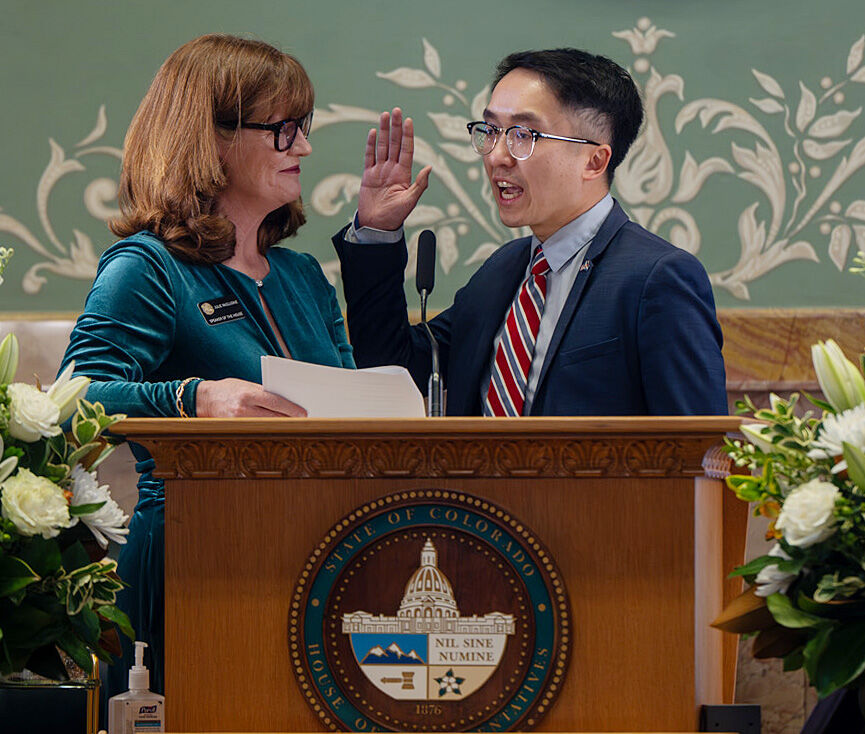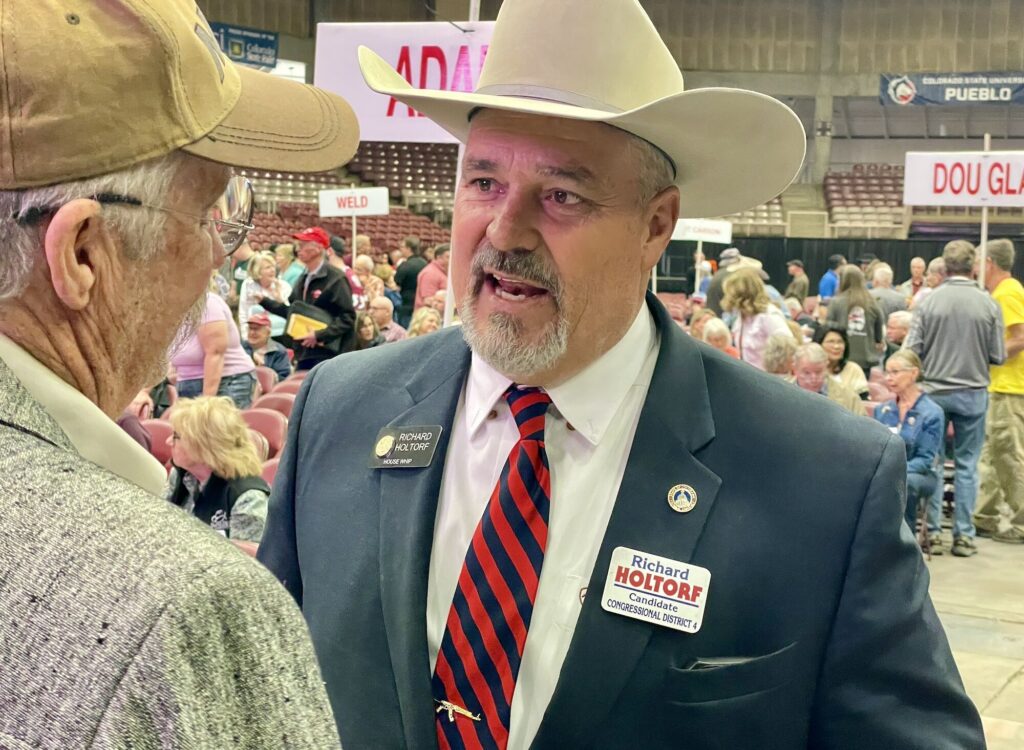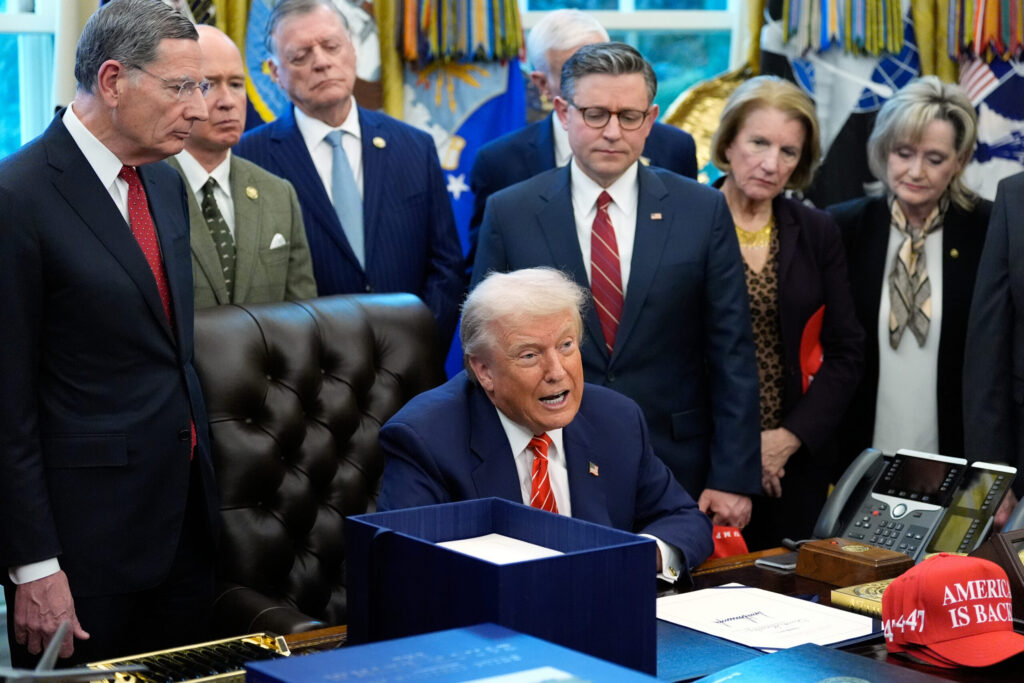Colorado Democrats once more dominate fundraising in competitive state House races
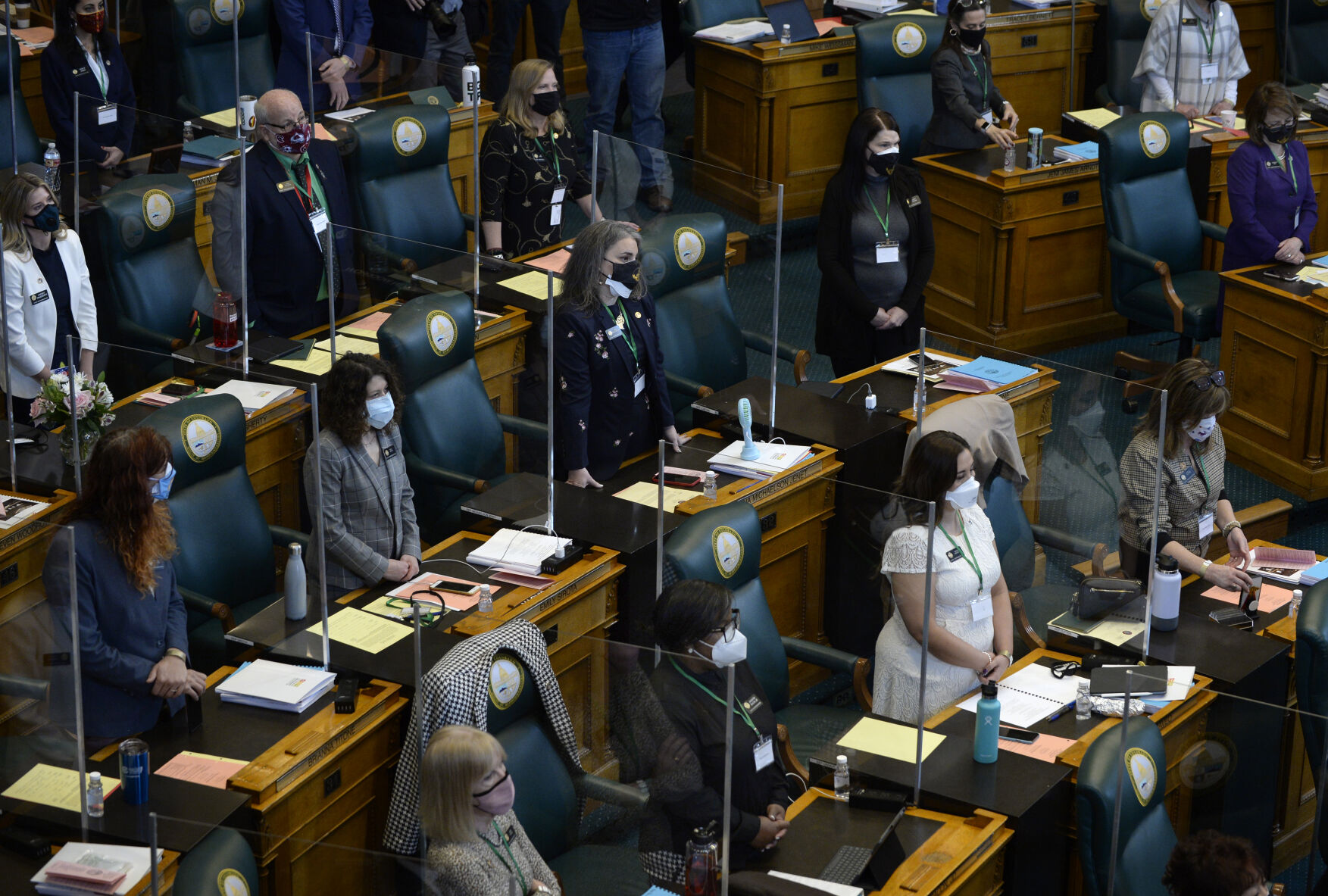
Democratic candidates expanded their fundraising leads in all but one of the most competitive elections for the Colorado House of Representatives in the final weeks before Election Day.
Democrats are winning the money race in nine of the 10 most competitive House contests, according to reports from the Secretary of State’s Office. In all 10 of those races, Democratic candidates have outraised their Republican opponents in the last two weeks, the latest reports show.
This is the second-to-last campaign finance report candidates will file before Election Day on Nov. 8, and it comes as the November election has the potential to bring big changes to Colorado’s state House.
Last year, the state redrew its district boundaries, moving many sitting lawmakers, changing the political balance of each district, and making several House seats competitive for the first time in a decade. While Democrats aren’t at risk of losing control of the chamber – enjoying a whopping 41-24 majority – Republican candidates have a shot at flipping a substantial number of seats to create a nearly evenly split legislature, though Republican candidates will now have to overcome a significant fundraising deficit in all but one of the most competitive races.
The biggest fundraising jump came from Rep. Marc Snyder, the Democrat running for reelection in House District 18. Snyder took in more than $28,000 since Oct. 4, putting his total at $143,000. In comparison, Republican challenger Shana Black, raised a total of $20,320.
Black took out a nearly $11,000 loan to try to narrow the funding gap, but her spending still paled in comparison to Snyder’s – $23,000 versus $85,000, respectively.
District 18 is the most politically competitive in Colorado after the state redrew its district boundaries last year, only leaning toward Democrats by 0.3% based on the redistricting commission’s analysis. However, voter registrations show that the district, based in El Paso and Teller counties, now leans slightly to the right, with more than 2,200 more Republican voters than Democrats.
Though Snyder had the largest increase in fundraising, two other Democrats also raised more than $20,000 in the last two weeks, and another four Democrats raised more than $10,000.
Only one Republican candidate raised more than $10,000 since the last campaign finance report: Shelli Shaw, who is running for House District 59 against the incumbent Democrat, Rep. Barbara McLachlan. Shaw raised more than $13,000 since Oct. 4, totaling just under $80,000 so far. However, McLachlan raised $18,000 in the same time period, and her total stood at more than $163,000 – more than double Shaw’s earnings.
McLachlan has steadily increased her fundraising edge each month, going from $32,000 in August to $51,000 in September and $83,000 now. District 59 – which includes Archuleta, La Plata and San Juan counties and parts of Montezuma County – leans 2.2% Democratic based on the redistricting analysis. The latest voter registrations show it has 4,200 more Republican voters than Democrats.
The only competitive race that financially favors the Republican candidate is in House District 19, where Republican candidate Rep. Dan Woog raised just under $74,000, while Democratic candidate Jennifer Lea Parenti hauled in more than $69,000.
Though Woog holds the money advantage, this is the smallest difference in fundraising by far for any of the top 10 most competitive House races. Parenti has also consistently narrowed the gap, going from a $13,000 deficit last month to less than $7,000 two weeks ago to around $4,600 now.
District 19, which is in Boulder and Weld counties, is technically an open seat due to the departure of Republican Rep. Tim Geitner and Woog being drawn out of his District 63. Both the redistricting analysis and voter registration results point to a small Republican advantage, with redistricting favoring the GOP by 1.5% and voter registration showing 712 more Republicans than Democrats.
Other notable races include House District 38, where incumbent Democratic Rep. David Ortiz has raised more than $211,000 – the highest fundraising total for any competitive House candidate. Though Ortiz is financially dominating Republican candidate Jaylen Mosqueira, who has raised more than $61,000, District 38 has a slightly larger Republican population, with around 700 more Republican voters than Democrats.
The race for House District 13 has the greatest disparity in fundraising, with Democratic Rep. Julie McCluskie taking in $202,000 compared to Republican opponent David Buckley’s $20,600. District 13 is an open seat after redistricting. It has a considerable 5.4% Democratic advantage, according to the redistricting analysis, but it actually has 1,000 more Republican voters than Democrats.
Colorado Politics identified the most politically competitive state House districts by looking at the estimated competitiveness from the Independent Redistricting Commission’s report, in addition to the most recent active voter registration numbers from September.
Here are where the remaining top 10 most competitive House races stand for fundraising:
House District 25
? Tammy Story (D): $146,097 – up by $23,100
? Colin Larson (R): $70,954 – up by $4,200
House District 26
? Meghan Lukens (D): $158,200 – up by $20,300
? Savannah Wolfson (R): $84,741 – up by $8,300
House District 61
? Eliza Hamrick (D): $126,016 – up by $8,400
? Dave Woolever (R): $32,646 – up by $4,100
House District 16
? Stephanie Vigil (D): $59,310 – up by $5,100
? Dave Donelson (R): $45,135 – up by $3,000
House District 28
? Sheila Lieder (D): $80,070 – up by $19,700
? Dan Montoya (R): $30,867 – up by $3,300



